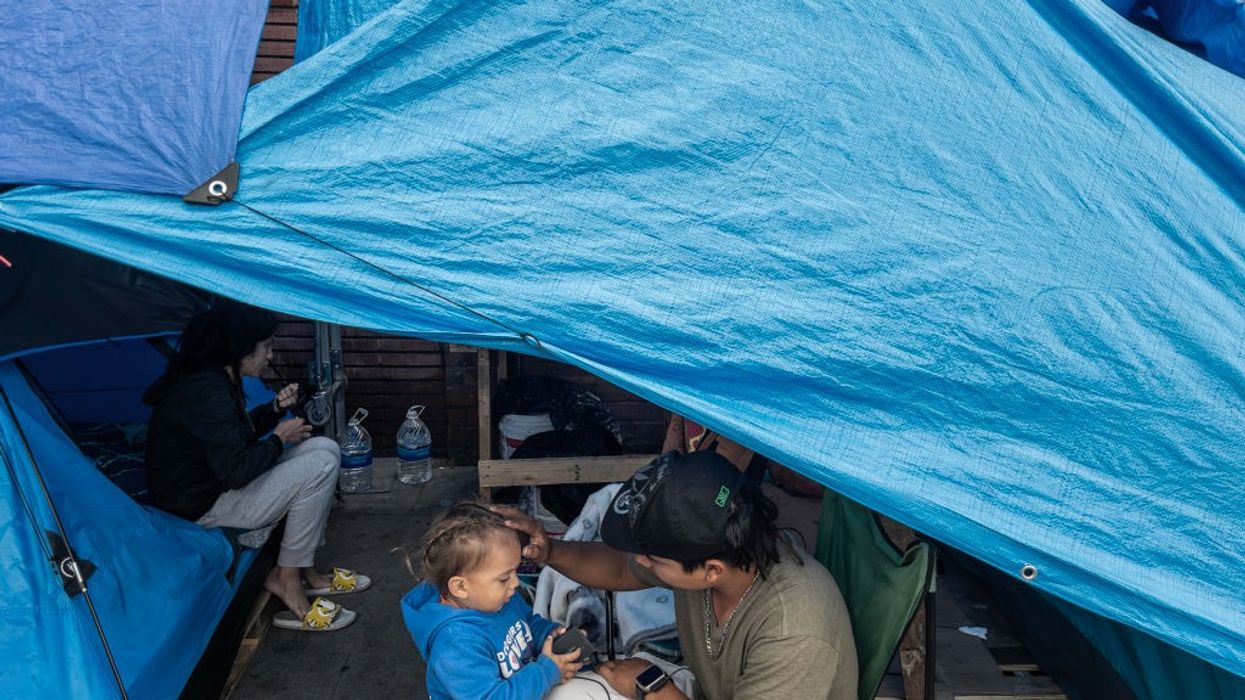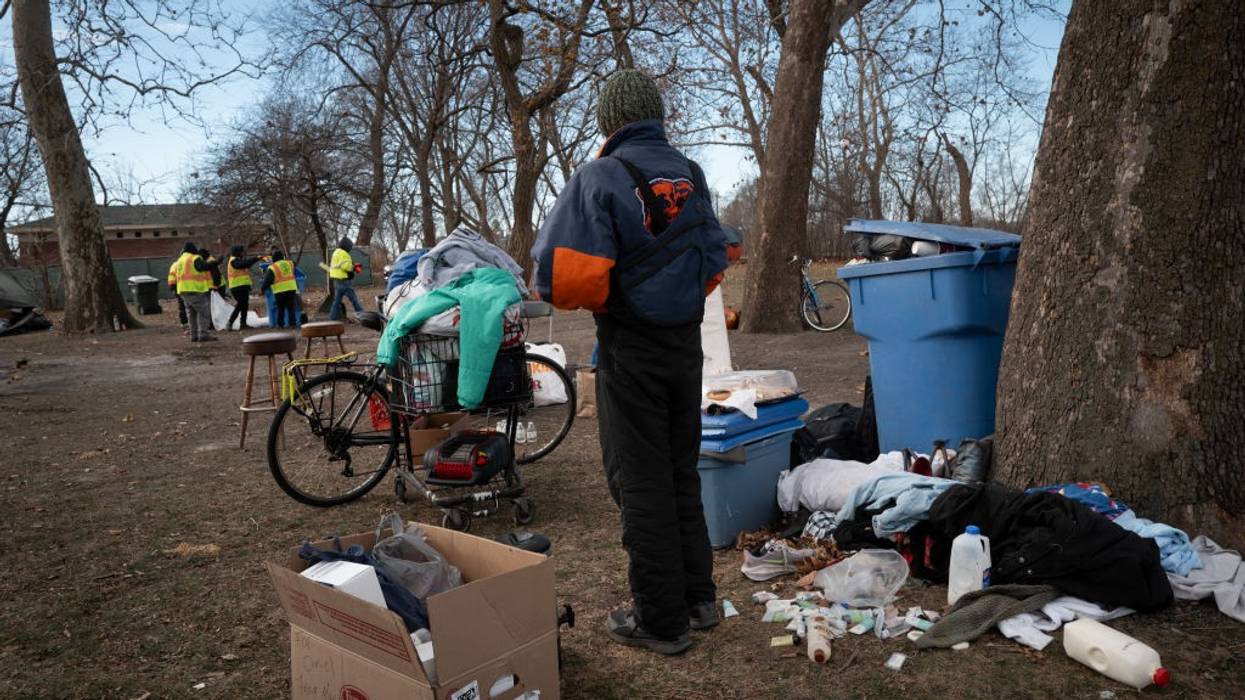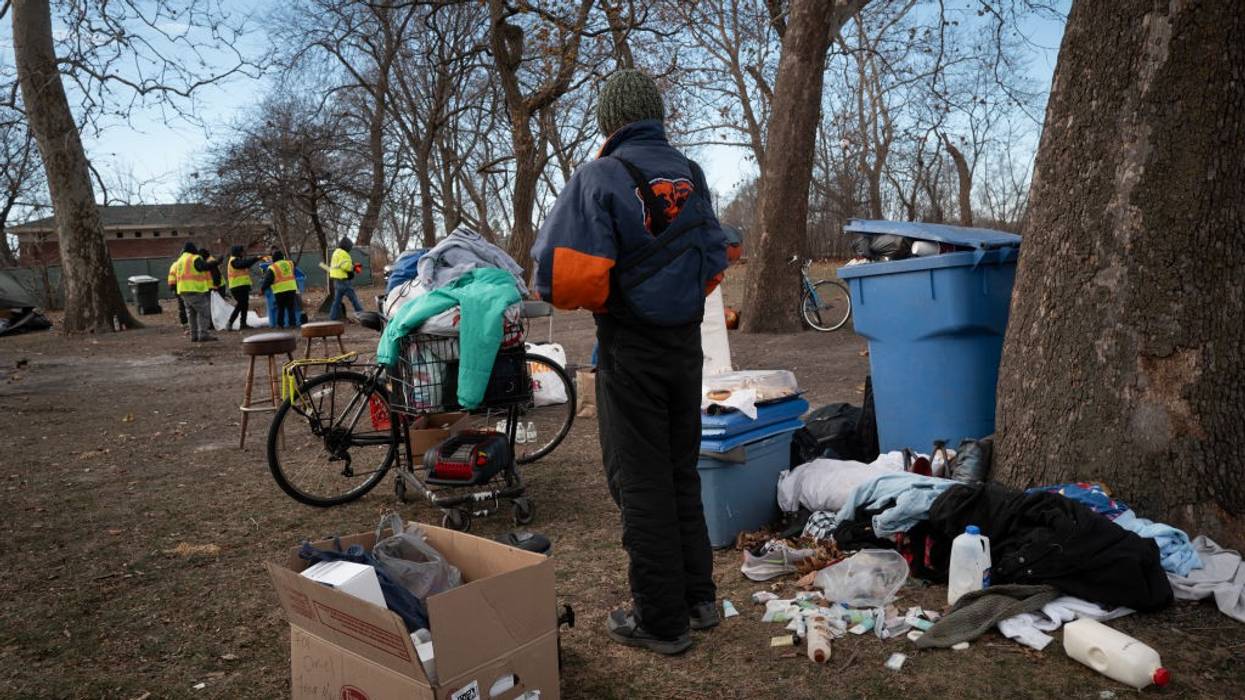Out of Sight, Out of Mind: Unhoused Families Are Being Ignored
Local politicians don’t see advantage in tackling a crisis that is hidden from view. So, it is up to the rest of us to step up.
Our eviction court clients do not want US President Donald Trump’s attention. Nor the Supreme Court’s, for that matter. But they would appreciate it if the rest of us took notice.
Last month, Trump issued a heinous executive order pushing for the arrest of individuals engaged in “urban camping and loitering.” Trump’s order followed on the equally callous 2024 Supreme Court decision in Grants Pass v. Johnson, which gave the legal green light for imprisoning people just because they are forced to live outdoors.
The Grants Pass decision opened the floodgates for state and local governments to destroy homeless encampments and make arrests for the crime of being unhoused.
Fortunately, many people have responded to these heartless attacks with both compassion and action. They lift up the proven success of Housing First programs that address the core need for a safe place to live, which then allows for other needs to be addressed effectively too. Sometimes, politicians and business leaders help—even when they seem to be motivated mostly by a desire to rid the city sidewalks and neighborhoods of unsightly displays of unhoused suffering.
When Trump and others label homelessness as largely caused by addiction or mental health issues, they have the causation arrow pointed in the wrong direction.
All good. Our sisters and (mostly) brothers in the streets and encampments deserve housing and dignity.
But, beyond the demonizing and harassment directed to visibly unhoused people, there is another deeply damaging outcome from all this political, media, and advocacy attention: Unhoused families are being ignored.
Thanks to the research of Princeton University’s Eviction Lab, we have long known that children are the most common demographic among the 7.6 million people who face eviction each year. That means our clients usually don’t look like the stereotypical single man on a downtown street corner or huddled under an overpass. But they need help just as much.
Consider our clients Kevin and Samantha and their infant daughter (I will not use clients’ real names), who each night squeeze themselves in to sleep in their 2011 Ford Focus. Just finding a place to park is a nightly challenge. Walmart security guards and park police pound on their windows and shine flashlights in their faces, waking the baby and kicking them out of parking lots.
Depending on the season, they have to run the car engine several hours of the night just to keep some heat or cooling going. Sleep is hard to come by in their cramped quarters, especially while keeping an eye out for police and attackers.
Since Kevin and Samantha take turns watching the baby while the other one works a shift at a fast-food restaurant, they often arrive early for their shifts. That way, they can take the baby into the restaurant bathroom and try to bathe as the best they can.
Tonya and her two children spent hundreds of dollars on rental application fees, only to be turned down each time because of a past eviction filing. For awhile, they bedded down on the floor of Tonya’s sister’s apartment. But the sister’s landlord threatened eviction for packing eight people into a two-bedroom unit.
So, when Tonya’s meager home healthcare wages allow it, she pays $75 for a night in a motel. The room is dirty—she won’t let her youngest crawl on the crunchy brown carpeting—and the parking lot is filled with loud, frightening people. But the motel doesn’t check tenant records, and it beats the alternative. On the nights Tonya cannot afford the motel fee, she and the kids sleep in the car.
Shelters Full; So is Subsidized Housing
Each morning, Samantha and Tonya call the handful of local shelters that accept families and ask if there are beds available. The answer is almost always no. After that, there is nowhere else to call. Subsidized housing for families has years-long waiting lists, which means 3 of every 4 households eligible for subsidized housing are out of luck.
These families are sometimes referred to as the hidden homeless. Parents with children avoid the streets and encampments not just for safety reasons: Allowing their kids to be seen unhoused can trigger a call to child welfare agencies. Unhoused families staying out of sight is a big reason why the official homelessness count is widely acknowledged as being far too low, especially when it comes to child homelessness.
Volunteers and professionals conducting the annual Housing and Urban Development “Point in Time” count do their best, but you can’t tally what you can’t see. That means that communities’ homeless counts sometimes fail to include almost any children at all, despite the fact a recent report by SchoolHouse Connection and the University of Michigan revealed that nearly a half-million infants and toddlers were homeless during the studied years of 2022 and 2023. For pre-K to grade 12 students, the number was 1.37 million. For context, that means the total number of kids experiencing homelessness in the US over the course of just two years is significantly larger than the entire population of the city of Philadelphia.
Living wages, childcare guarantees, and affordable housing—especially affordable housing—would shut down our eviction courts and empty out homeless family shelters.
When Trump and others label homelessness as largely caused by addiction or mental health issues, they have the causation arrow pointed in the wrong direction. For our clients and the majority of those who are unhoused, their main problem is not mental health. They simply cannot afford their rent. But their housing struggle definitely leads to health crises: Multiple studies have shown that evictions and homelessness contribute to children’s mental illnesses, respiratory conditions, infections, delayed cognitive development, and difficulties in school and social settings.
Donald Trump is not paying attention to this. Downtown business leaders are unconcerned. Local politicians don’t see advantage in tackling a crisis that is hidden from view.
So, it is up to the rest of us to step up.
The solutions are not hard to find. Families living without shelter is unthinkable in other nations, as it largely was in earlier generations here in the United States. Living wages, childcare guarantees, and affordable housing—especially affordable housing—would shut down our eviction courts and empty out homeless family shelters.
To get there, we first have to pay attention to the families of Kevin, Samantha, Tonya, and the million-plus other kids and parents who don’t know where they are going to sleep tonight.


